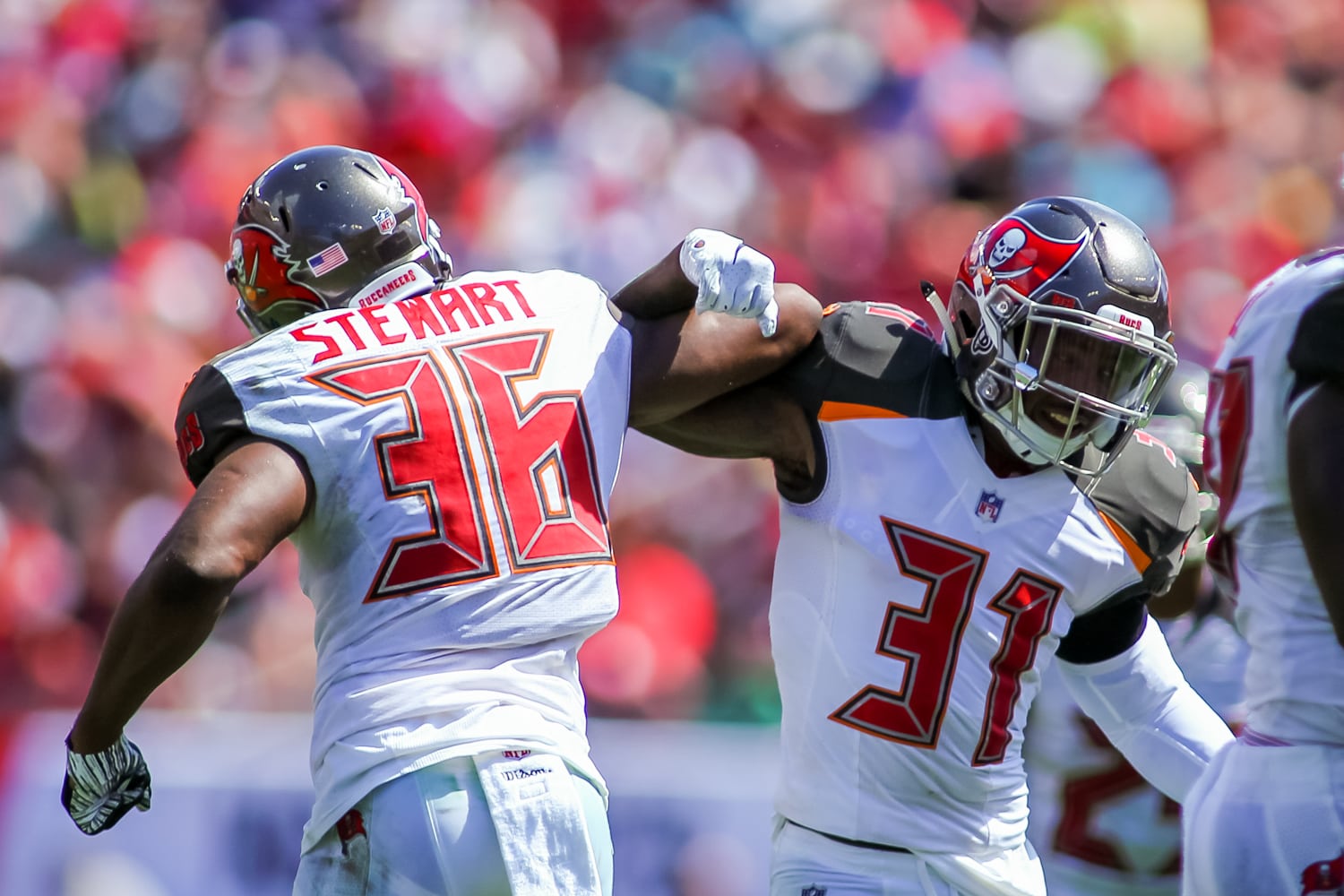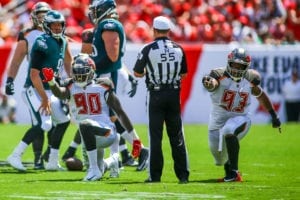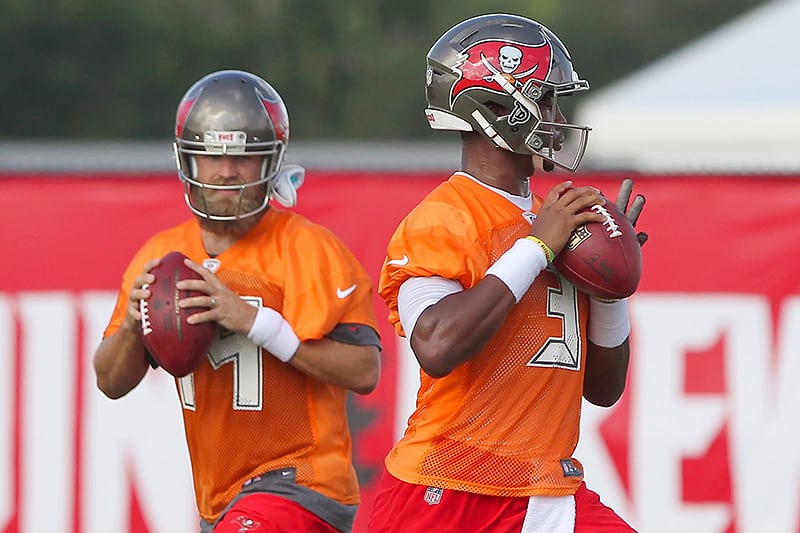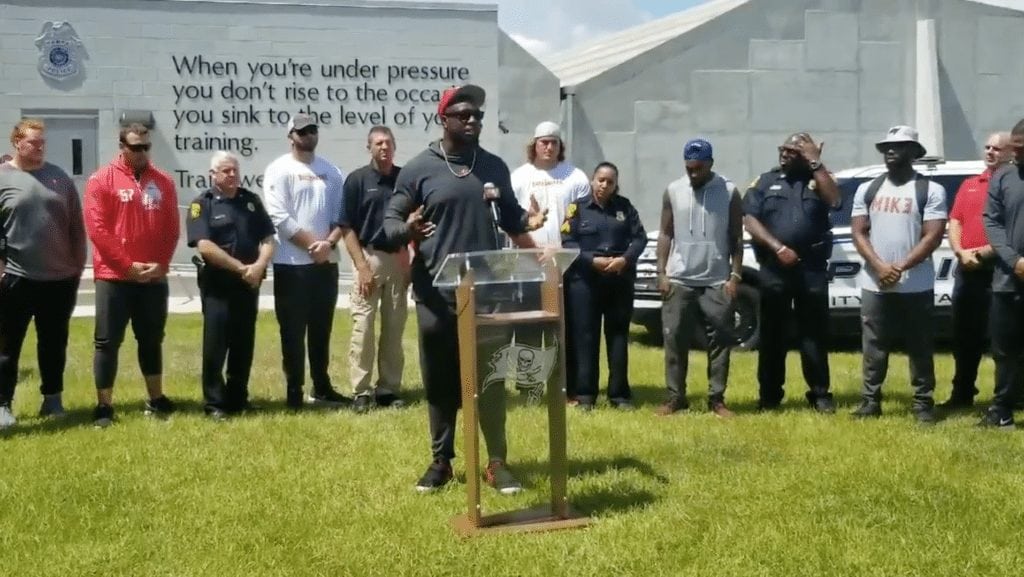Cover 3 is a weekly feature column written by PewterReport.com’s Tampa Bay Buccaneers beat writer Trevor Sikkema published every Tuesday. The column, as its name suggests, comes in three phases: a statistical observation, an in-depth film breakdown, and a “this or that” segment where the writer asks the reader to chose between two options.
Sikkema’s Stat of the Week
Which would you rather have, an elite offense or an elite defense?
If you ask most people around these parts, they’d tell you an elite defense. They’d reminiscence on how their Buccaneers created and perfected their own defensive concept – the Tampa 2 – that took the league by storm for a few years and won them a world championship because of it. They’d remind you that in 2002 the league’s best offense faced off against the league’s best defense and it wasn’t even a good game; the defense was just that good.
I am in no way taking anything away from that time and this franchise’s legacy within it. But the fact of the matter is it’s not 2002, and the game has changed since Derrick Brooks, Warren Sapp, John Lynch and Ronde Barber donned the red and pewter. Defenses have their work cut out for them now, not just with the innovation of spread offensive concepts, RPO’s and no-huddle offenses, but there are rules that are now in place that give even more of an advantage to those on the offensive side.
In last week’s Cover 3, I focused heavy on the offensive side of the ball. We examined some of the big plays and some of the little plays; the total package of Todd Monken’s play calling and the execution of it. But there were some of you in the comments of that piece (and I’m not saying this negatively) that were more concerned with the defense making life too easy on quarterback Drew Brees and giving up 40 points as a result.
That got me to thinking. When the Bucs offense is firing on all cylinders like they were against the Saints and Eagles, how much does defensive improvement really matter? Sure, every Bucs fan would like to see the team pitch a shutout every game, but that’s not reality. Within reality I came to ask the question: where is the imaginary necessary line where a defensive can still give up yards and points and yet do enough to win the game?
Let’s look at the playoff teams from last year and some of their numbers to possibly determine that.
[table id=77 /]OK, first of all, how in the world did the Bills make the playoff last year? Ranked 26th and 29th in terms of offensive and defensive yardage in the regular season? I mean, that is a disgusting act.
After that, what’s the first thing you notice about yardage? Really good teams make the playoffs, right? To win in football you, of course, have to have some sort of a balance on both sides of the ball, or at least that’s what you aim for. Teams like the Steelers, Eagles, Jaguars and Falcons were all Top 10 in each yardage category, and they were rewarded with postseason success because of it – Philadelphia ended up winning it all.
If you average together the yardage rankings of each of the playoff teams, offense slightly wins out. The average in offensive ranks come out to 10.3 and the average in defensive ranks was 13.3. That shows a slight advantage to offensive teams having a better chance of reaching the postseason, or at least having a Top 10 offense being more of a requirement than a Top 10 defense in terms of yardage.
But what about points? Certainly those rankings are a bit higher since the team that scores the most wins, and though high offensive success is still necessary, there isn’t a single defensive team that ranked below No. 20 in terms of points given up that made the playoffs in 2017.
I think the truth is in the differential. The magic number seems to be right around six or seven. If you can average one touchdown more than points given up, regardless of how high either number is, you have your chance against the best in the league. In the end, however, it ended up being the No. 2 teams in the league in offense dethroning the No. 1 and No. 2 defensive teams in the league to make the final game of the season.
So, is defense important? Absolutely it is. However, I would argue that a team’s defensive importance is more relative than it is required. As long as your offense can put up a touchdown more than your defense gives up, you’ll be in good shape, and if your offense is on the higher end of the league spectrum, then you’re talking about a realistic shot to win it all in the modern day NFL.
The Bucs offense has been rolling in the first two weeks, and they’re ranked as the No. 2 offense in the league at 37.5 points per game because of it. That puts them on par with both of the Super Bowl teams of 2017. As for their defense, they are one of the bottom 10 teams in the league, but an average of 30.5 points given up per game still gets them in that sweet spot of a 7-point differential.
Right now, that’s getting Tampa Bay victories, but the better the defense, the greater margin for error on offense, even if Ryan Fitzpatrick and company cool down a bit. On the next page we’ll examine what the Bucs defense needs to do as a compliment to make sure their offense can be enough each week.
Trevor Sikkema is the Tampa Bay Buccaneers beat reporter and NFL Draft analyst for PewterReport.com. Sikkema, an alumnus of the University of Florida, has covered both college and professional football for much of his career. As a native of the Sunshine State, when he's not buried in social media, Sikkema can be found out and active, attempting to be the best athlete he never was. Sikkema can be reached at: [email protected]





